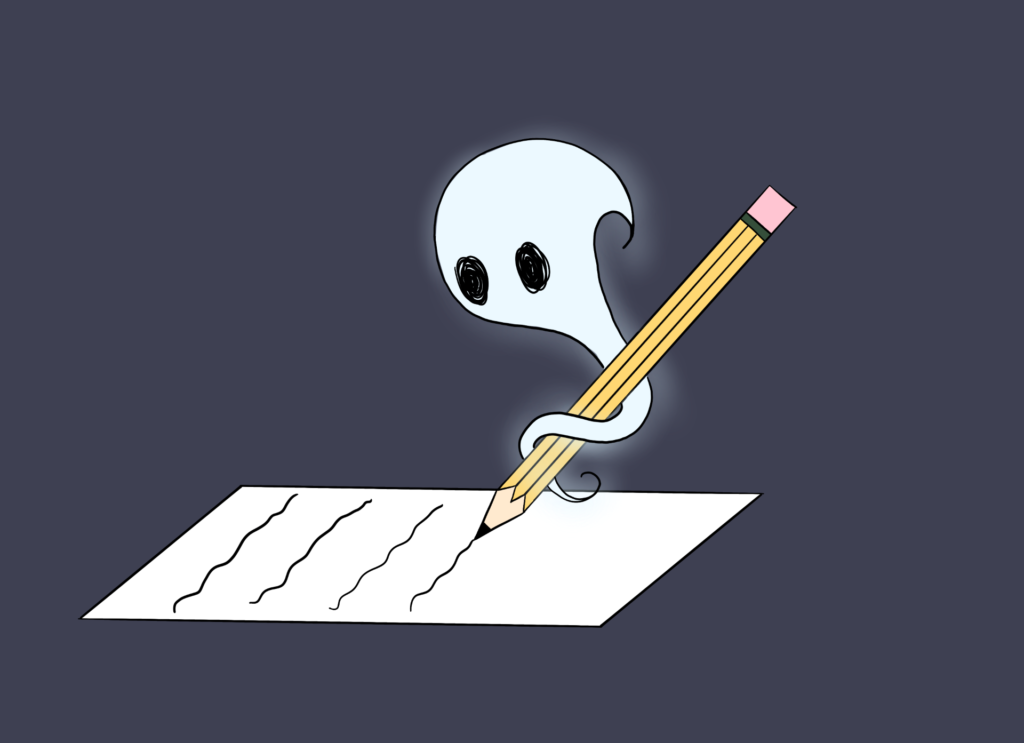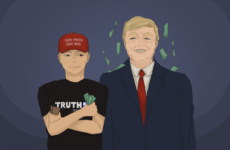
By Francesca Howard ’26
The core issue of ghostwriting can be summarized in one word: dishonesty. Paying someone else to pass off their words as your own without giving proper credit is dishonest. Ghostwriting misleads audiences about who created the content they consume, and this is especially problematic when these figures hold positions of power.
Celebrities often use ghostwriters for autobiographies or speeches, which creates a false impression of their abilities. Most notably, Donald Trump’s critically acclaimed autobiography, The Art of the Deal, was written American journalist Tony Schwartz.
Schwartz later expressed remorse for crafting the public persona of the business mogul. He candidly admitted to embellishing Trump’s achievements: “I feel a deep sense of remorse that I contributed to presenting Trump in a way that brought him wider attention and made him more appealing than he is.” Schwartz took a man and made him into a magnate.
Yet, more important than Schwartz’s regret is the influence his ghostwriting had. The Art of the Deal provided Trump with decades of undeserved praise, whether that be in bolstering his businesses throughout the ’90s or appealing to potential voters during his presidential campaigns.
How can citizens make informed decisions when they cannot trust their so-called “leaders” to even write their own speeches? Trump passed an inauthentic depiction of himself as the introspective truth, tricking millions for his selfish benefit.
But this sort of borrowed brilliance is not an anomaly; it’s ubiquitous in the music industry, celebrity memoirs, political speechwriting, academia, and the music industry. Many popular book series like Goosebumps, the Nancy Drew series, and The Babysitter’s Club are all ghostwritten. In all these cases, ghostwriting is detrimental because it compromises trust, swindles writers, and diminishes the value of the work.
Although ghostwriters might leap at the opportunity to make some money and work with a famous subject, they only do a disservice to themselves in the end. These writers pour their skill, expertise, and time into creating works that climb bestseller lists and shape public sentiment.
However, professionals usually don’t receive credit or acknowledgment for their work. Ghostwriters often sign contracts with clauses that their identity will remain confidential. This anonymity can impede their professional growth and prevent them from garnering recognition. They are deprived of the career opportunities and accolades that should accompany their successful work.
Additionally, the ghostwriting industry tends to offer lower-paying opportunities relative to other writing jobs, thus devaluing the profession and making it more challenging for writers to secure fair compensation. In short, ghostwriting is nothing more than exploitation. The rich and powerful benefit off the backs and labor of those less fortunate.
More importantly, the influence that ghostwriting has on its audience is dubious at best and detrimental at worst. This hidden collaboration between the nominal author and the actual writer not only misleads the audience but also diminishes originality.
As with Schwartz, ghostwriters may have conflicting opinions on their subject. This noticeable disparity can affect the audience’s perception of the work. Readers, who believe they are getting a sneak peek into the minds of figures like Trump, are unaware that the words they devour are not written by the person they believe. Upon this realization, some may feel a sense of disappointment or betrayal.
Ghostwriting benefits only those whose name is on the cover. They can enhance their image without ever picking up a pen. On the other hand, the writers themselves remain, as the name suggests, ghosts. While the practice is legal, that does not mean it’s ethical. Ghostwriting is a misleading facade to the public, a product of exploitation, and a dilution of the authenticity of the work.




